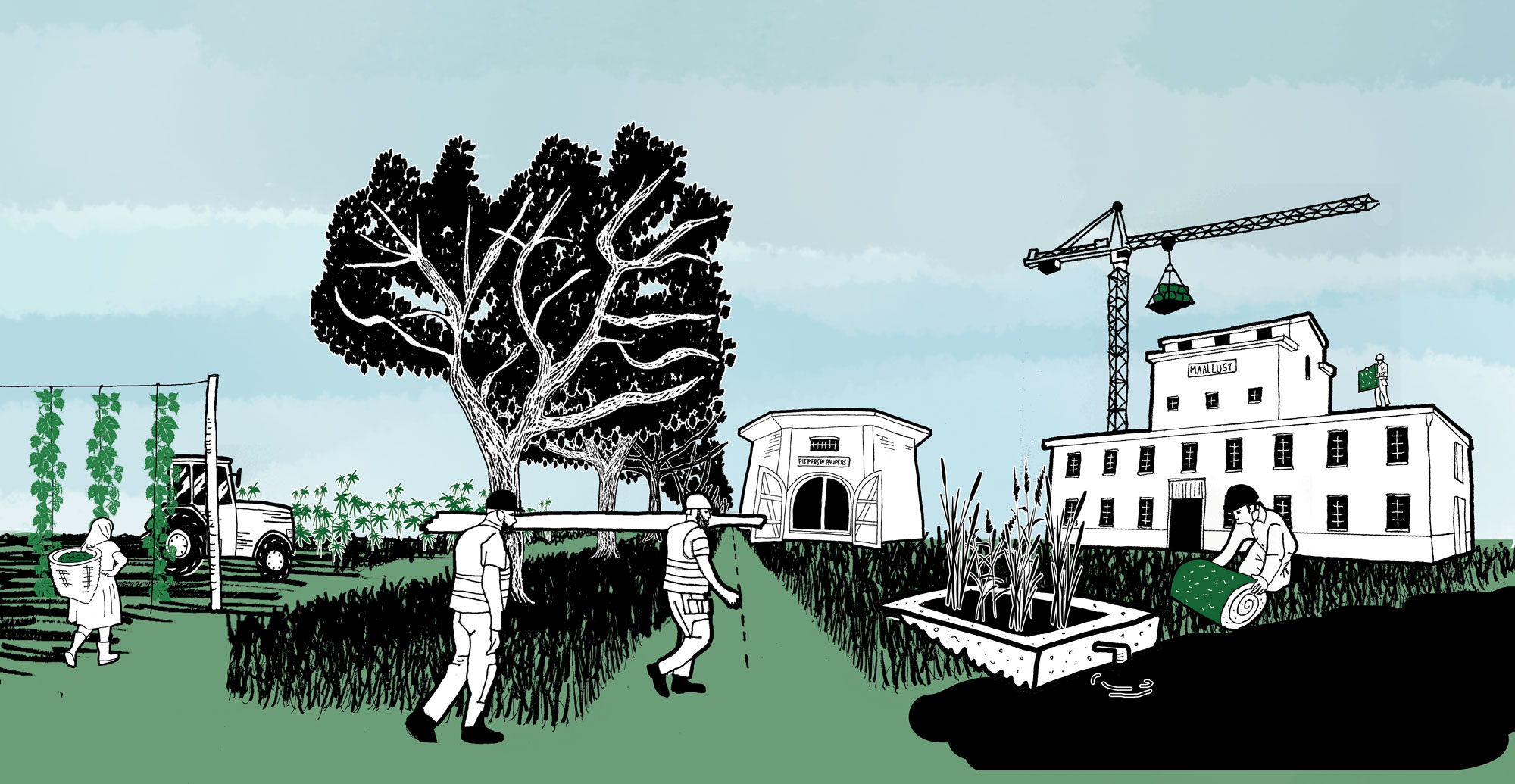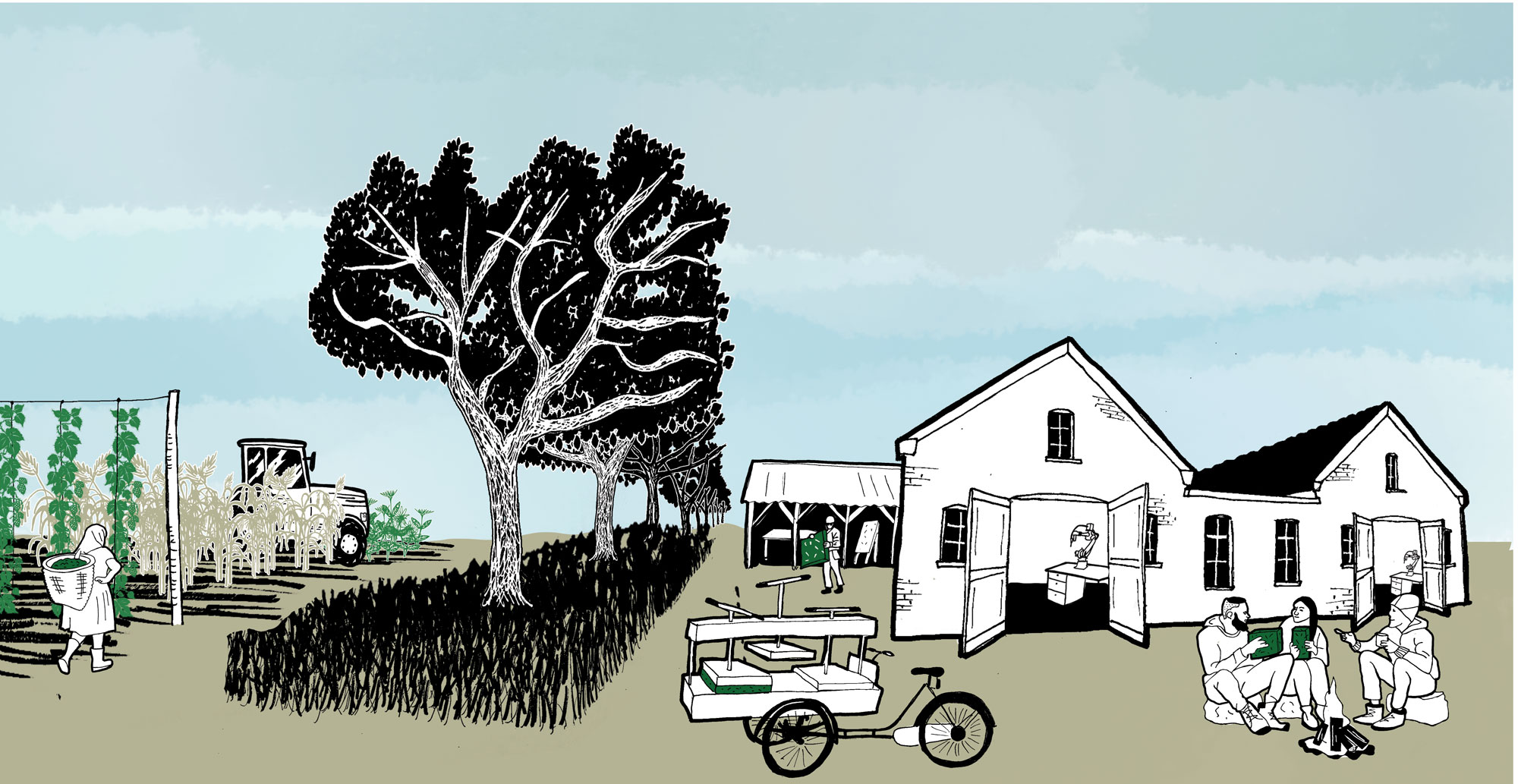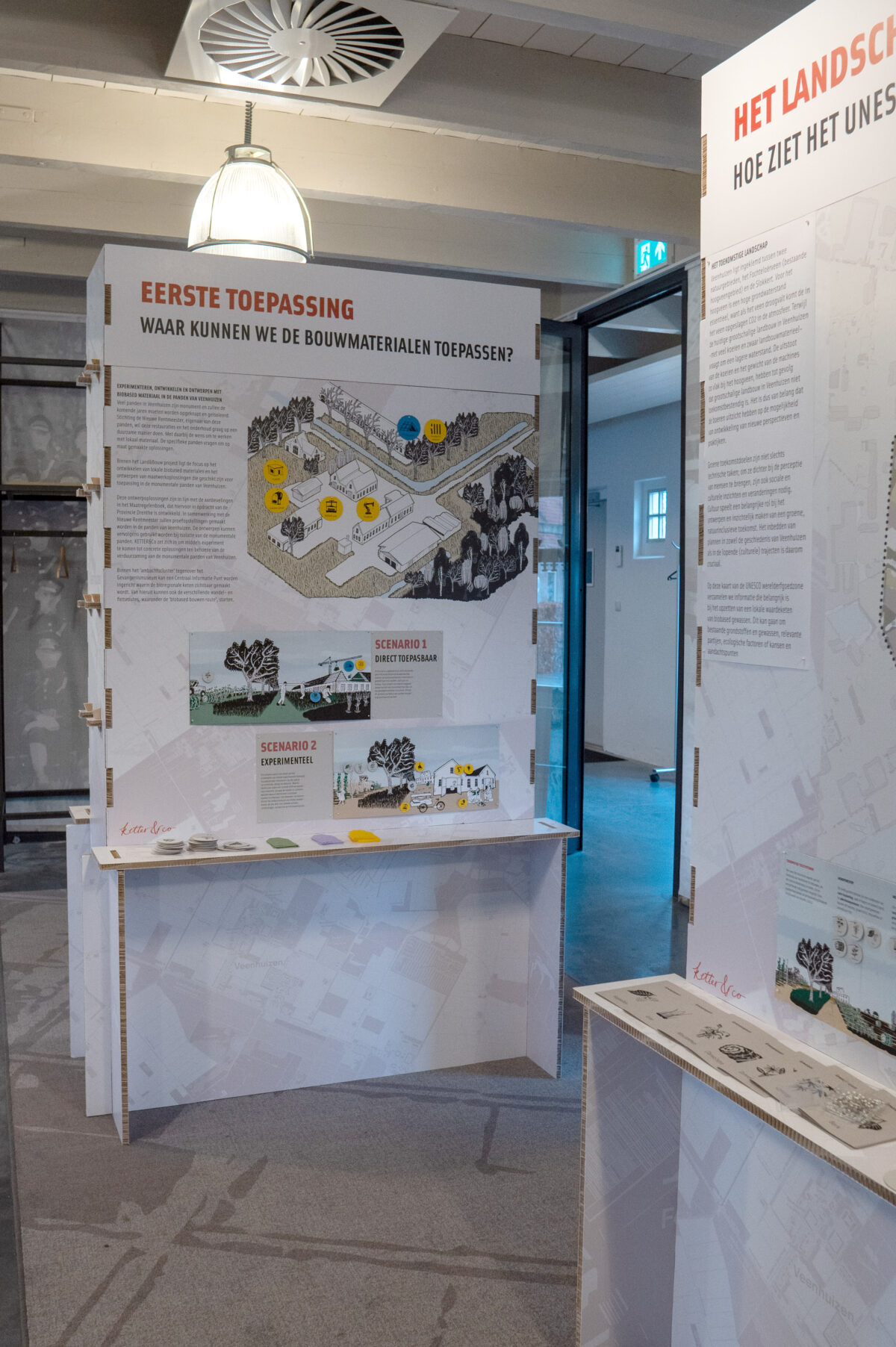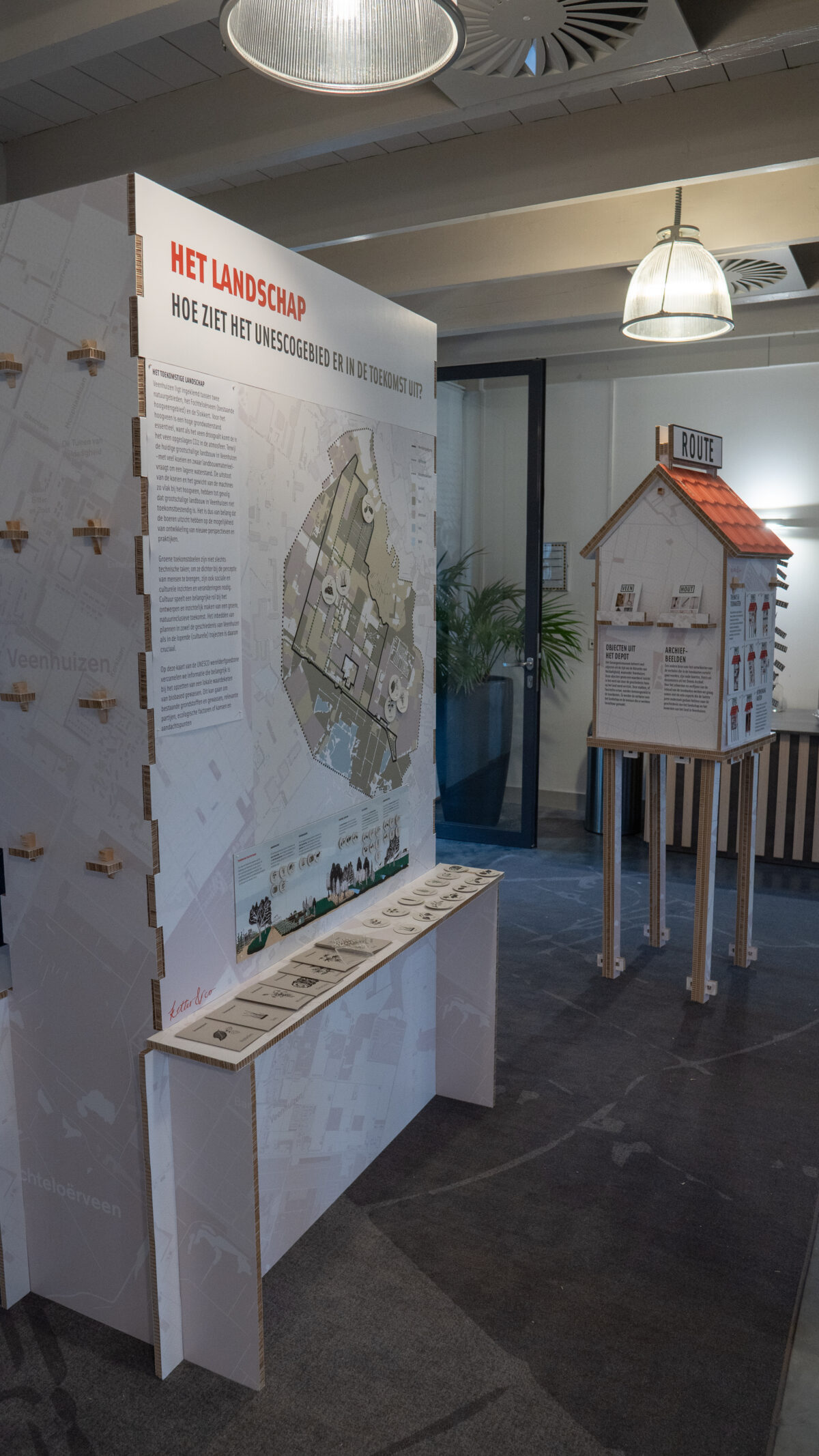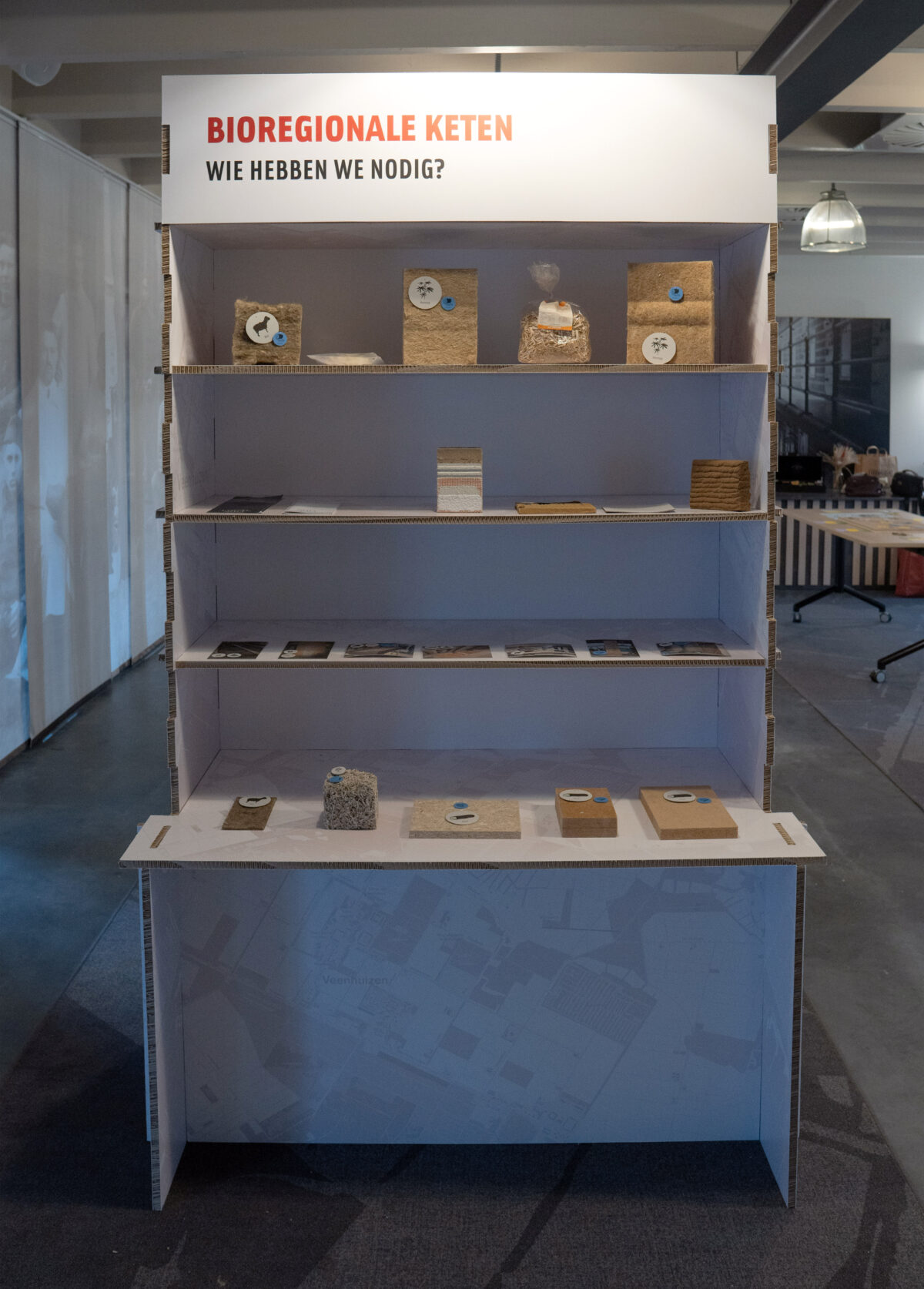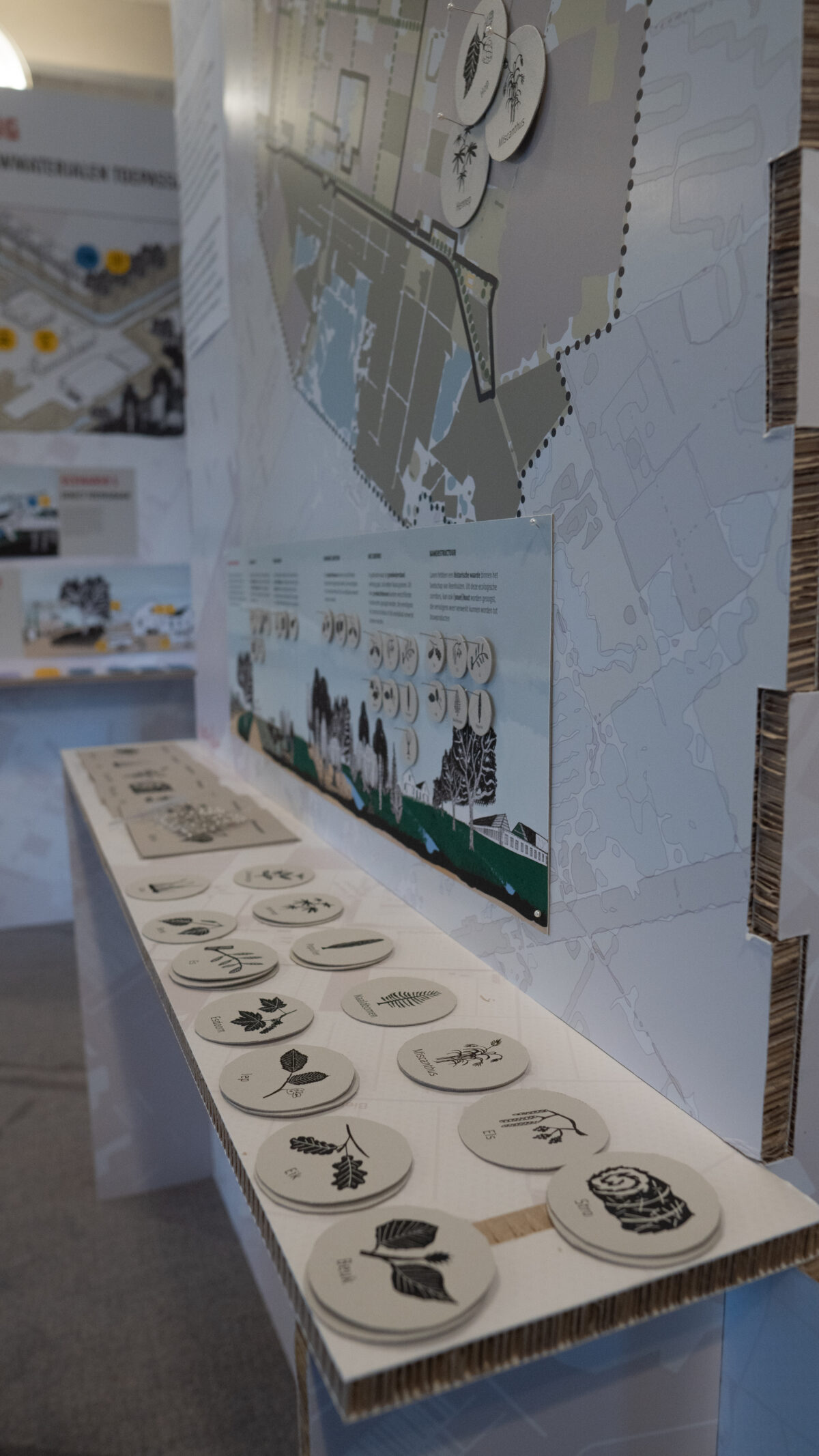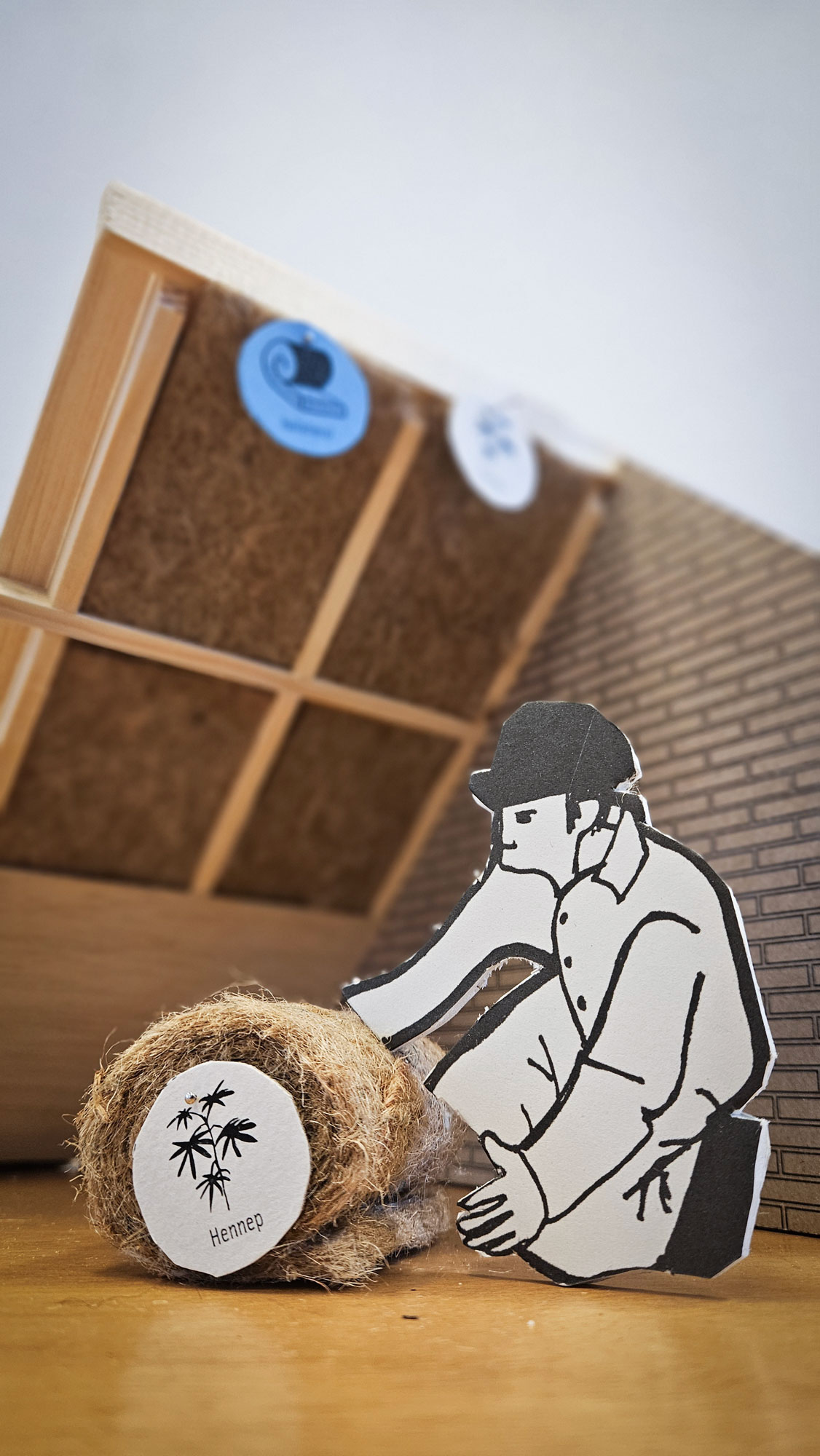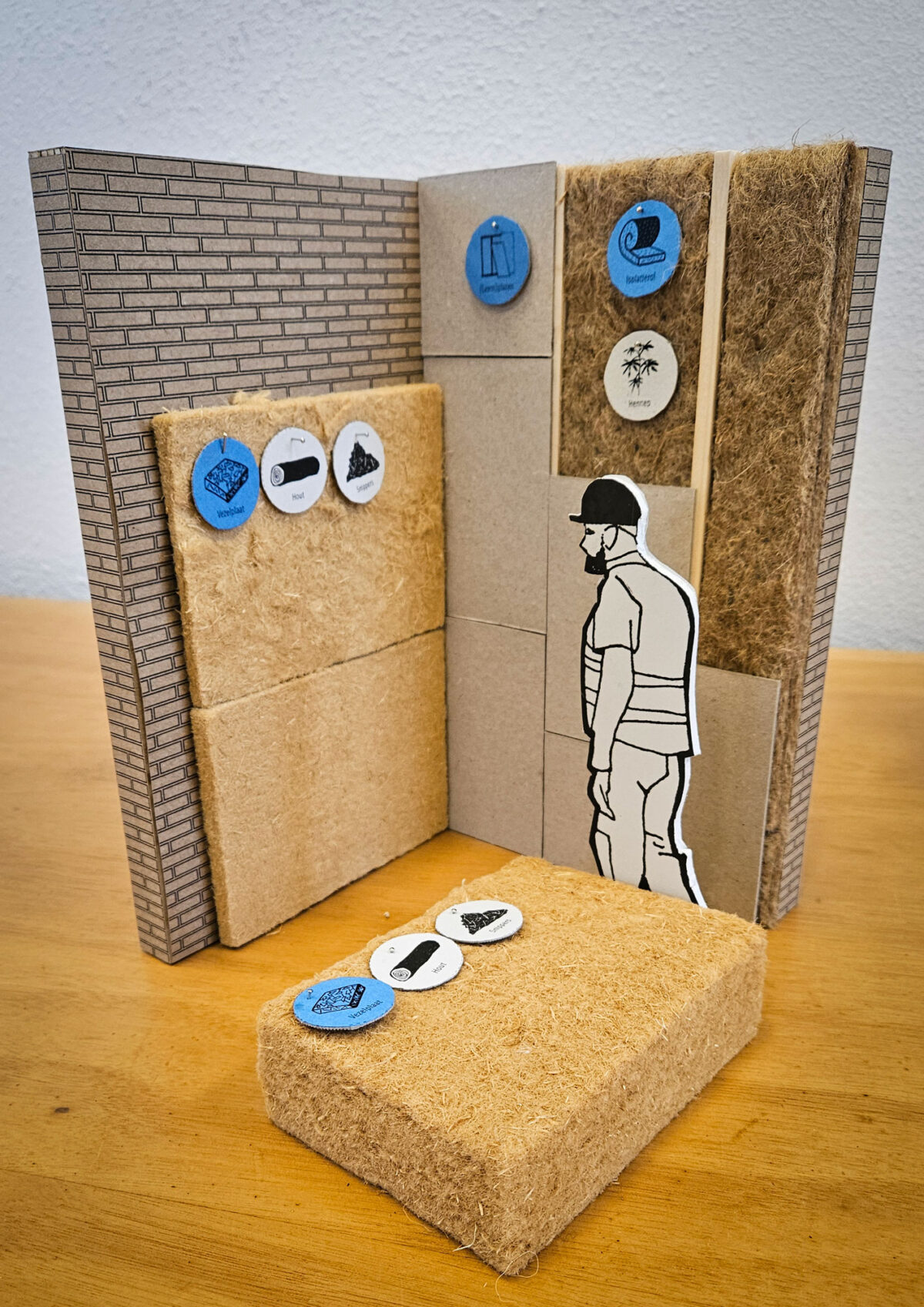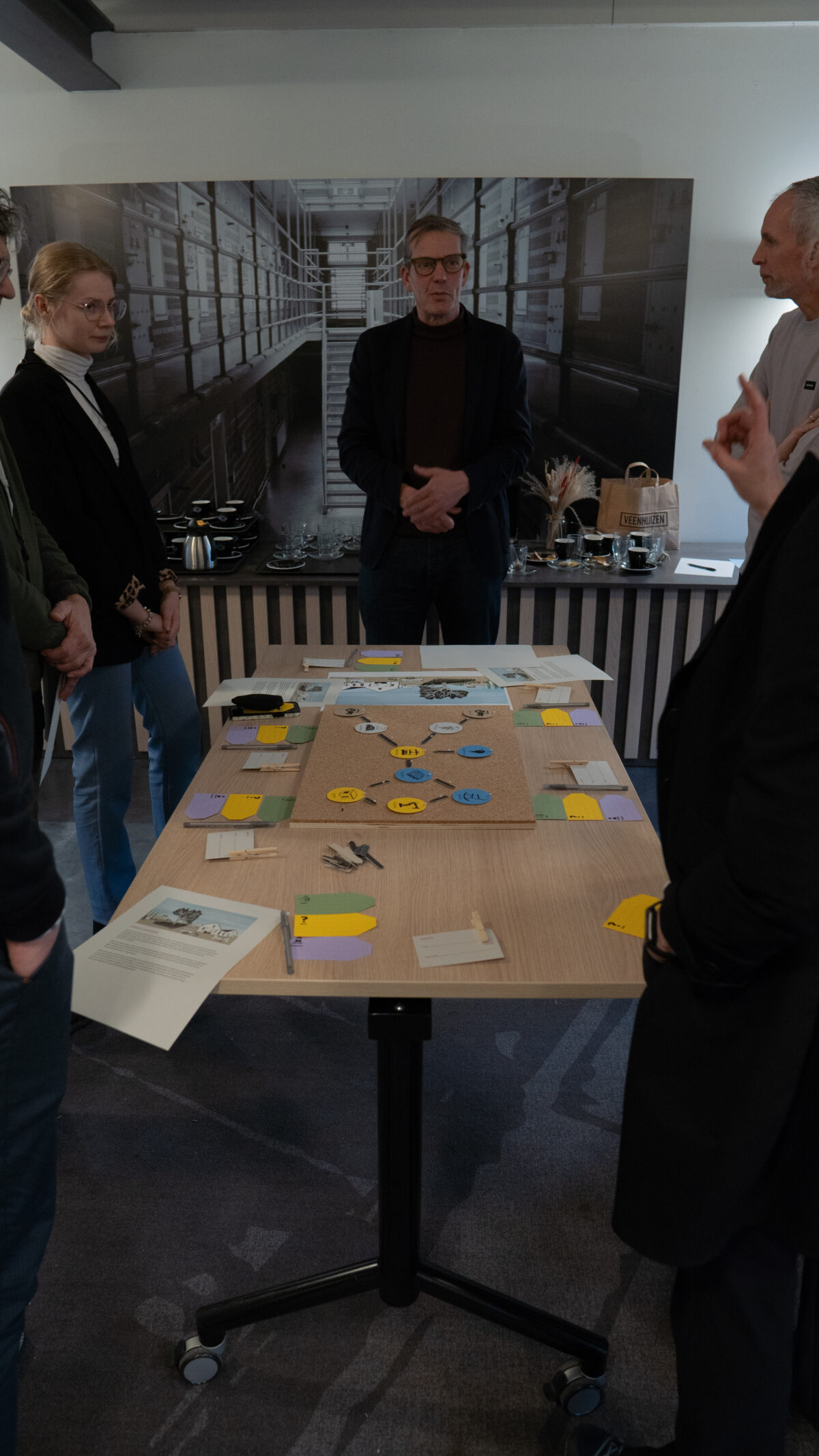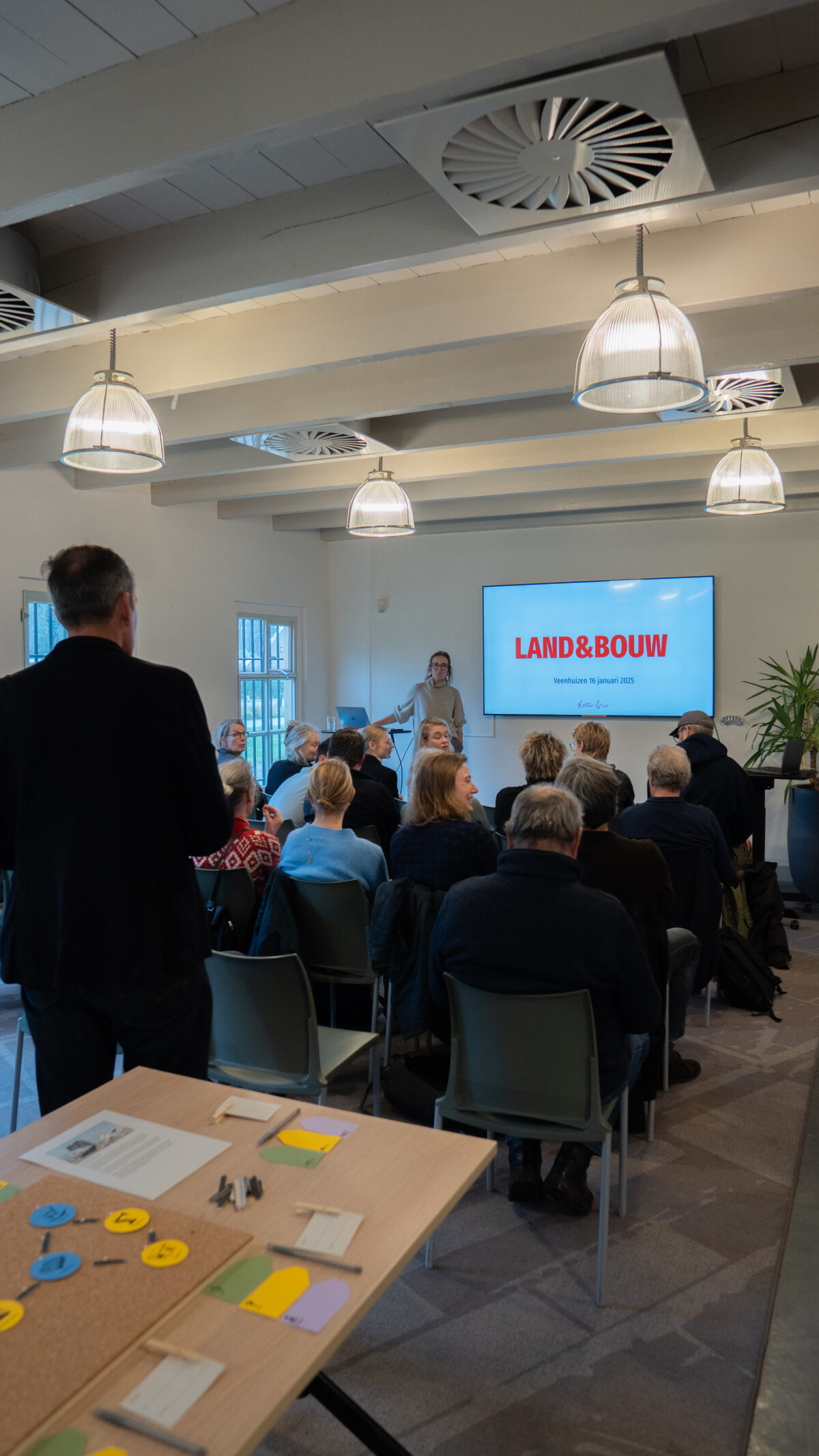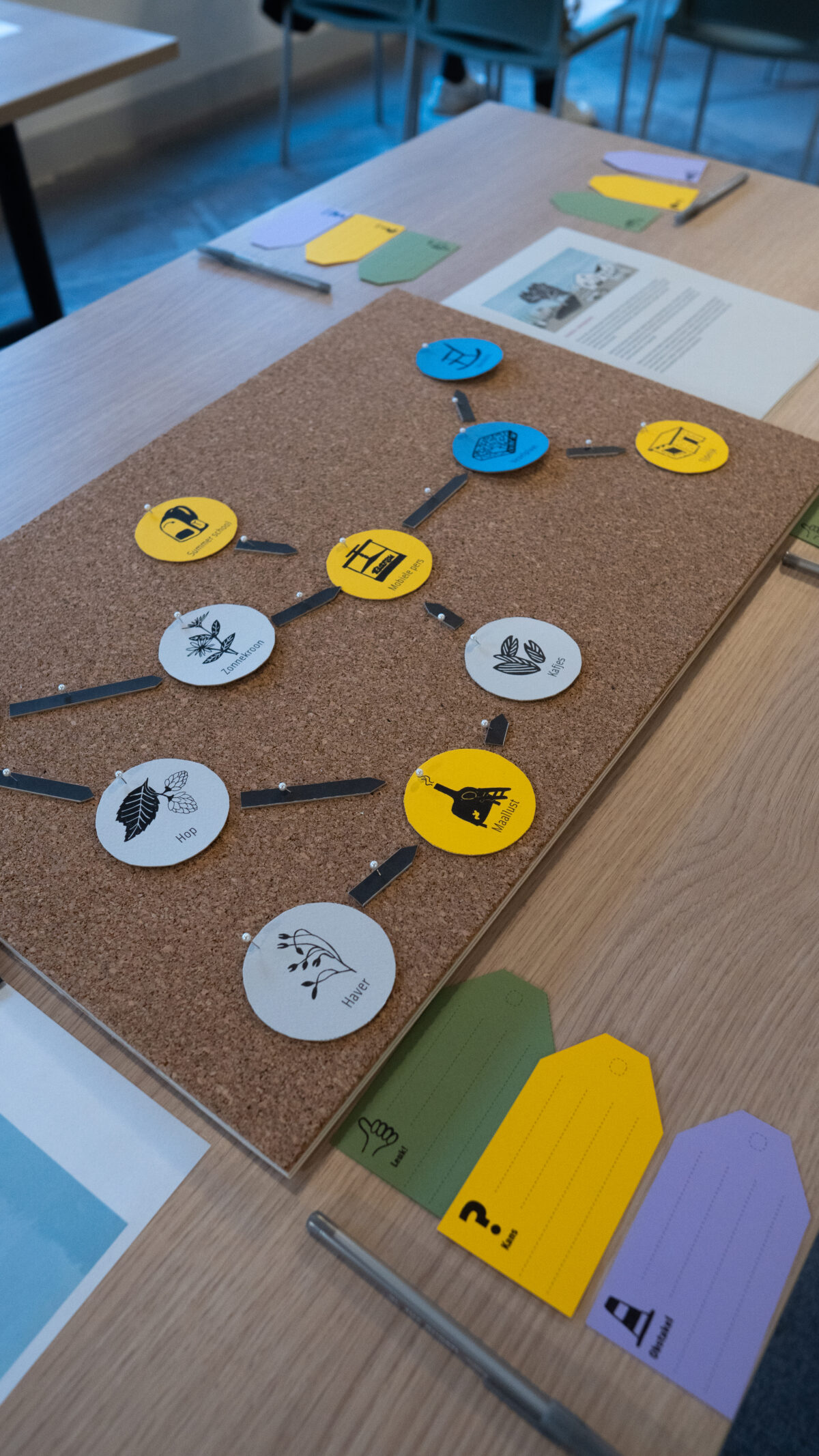Land&Bouw 2 5
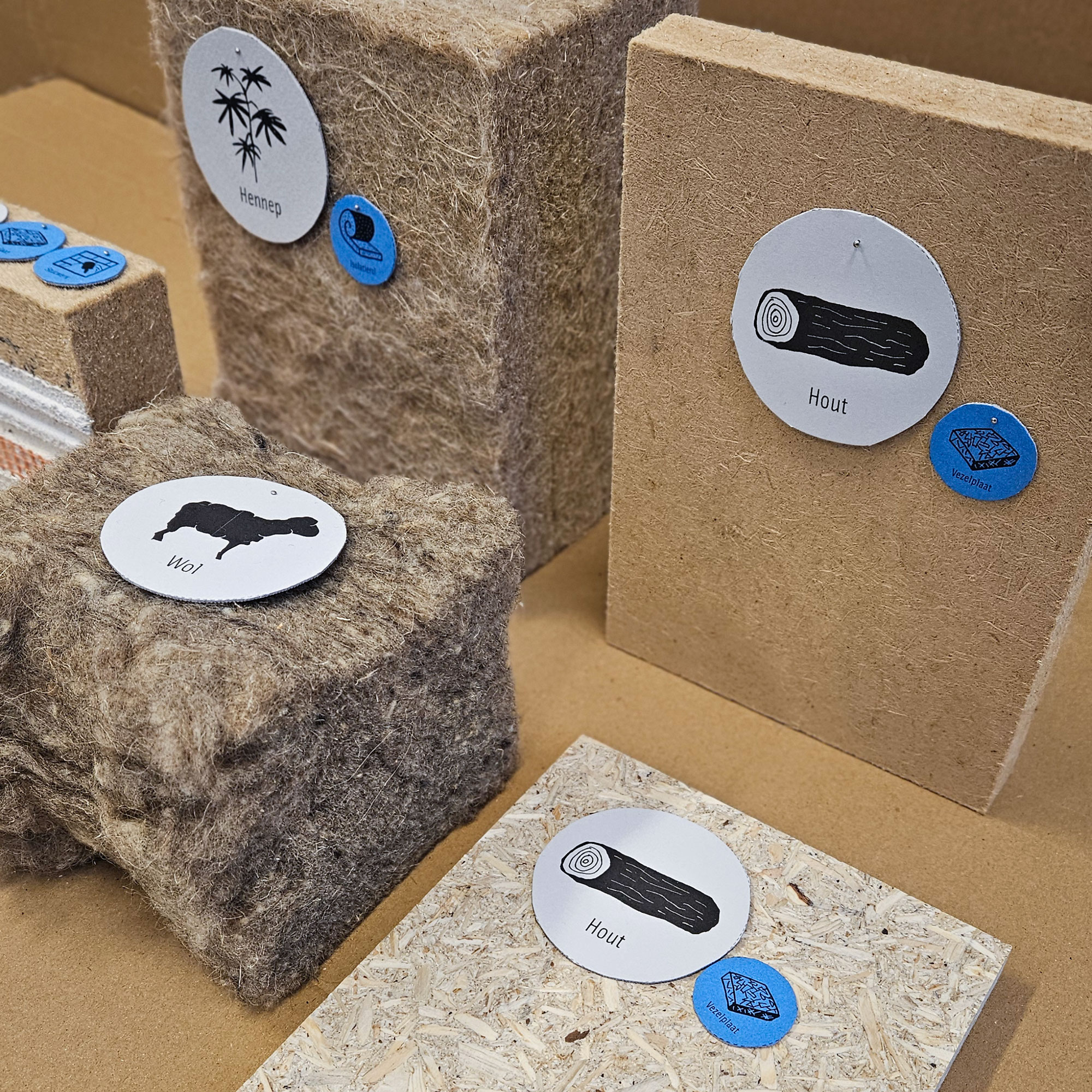
- General information
-
NameLAND&BOUW
-
Year2024/25
-
TypeResearch, co-design workshop
-
CollaborationKetter&Co
For the LAND&BOUW project in Veenhuizen, Ketter&Co searches for sustainable ways to reconnect people and the landscape. Veenhuizen, once founded as an agricultural colony with a social purpose, is now facing a challenge that touches on the same core: how can the landscape contribute to human well-being and how can humans use this landscape in a respectful and innovative way? Against the backdrop of climate change, energy transition, and pressure on heritage and nature, this place is an ideal laboratory for experimenting with biobased materials, circular value chains, and new collaborations.

The project provides insight into the first steps of LAND&BOUW. The focus was on mapping local knowledge and opportunities via a so-called harvest map, which formed the basis for discussions with stakeholders, excursions, and a workshop at the National Prison Museum. This resulted in two possible future scenarios: a directly applicable scenario, which emphasizes practical and feasible applications of biobased materials, and an experimental scenario, which offers scope for innovation, education, and new forms of collaboration. These scenarios formed the basis of a timeline for continuing the LAND&BOUW project in a concrete manner.
Initial results show that there are many opportunities for establishing a local value chain for biobased materials. This requires consideration of the complexity of heritage preservation, licensing procedures, agricultural possibilities, and the role of local communities and entrepreneurs. Collaboration between designers, farmers, policymakers, and heritage specialists creates a network that contributes to both sustainable development and the preservation of Veenhuizen’s unique character.
